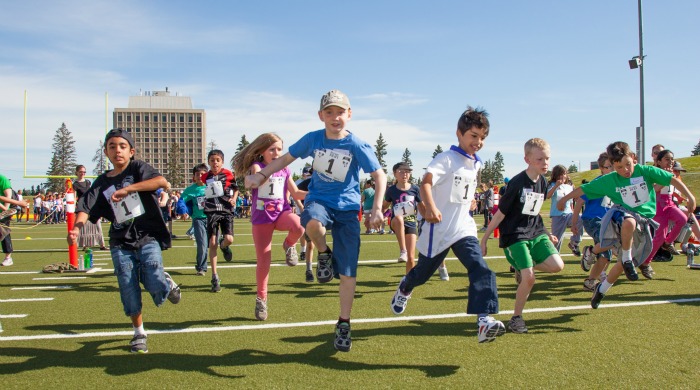
While there is a growing market of television programming, electronic toys, and apps for personal devices targeted at young children, the impact on early childhood cognitive development from those sedentary activities is under scrutiny by a group of researchers in the University of Alberta's Faculty of Physical Education and Recreation and Department of Psychology.
Dr. Valerie Carson, an Assistant Professor in the Faculty of Physical Education and Recreation, and Dr. Wiebe, an Associate Professor in the Department of Psychology are researching the positive effects of physical activity in relation to early childhood cognitive development, as well as the potentially negative effects of sedentary behavior on early childhood cognitive development. And while the research is on-going, early results clearly point to the positive role that physical activity plays in early childhood cognitive development, or in other words, the development of a child's ability to think and understand, while sedentary behavior may have a negative impact on developing those abilities.
"Our rigorous review of the scientific literature on physical activity and cognitive development in early childhood found limited studies on the topic," noted Dr. Carson" "but in the studies we did find, the vast majority showed that physical activity is positive for brain development."
A second review conducted by the team found that screen time, in particular TV, was either not associated with or had detrimental associations with cognitive development in the majority of studies. Evidence also indicated that reading and being read to have beneficial associations with cognitive development.
"The findings challenge [VC1] the assumption that screens are beneficial for learning," explained Dr. Carson. "The take home message is we want to promote regular physical activity in young children. We understand that children and their parents cannot be active every minute of the day, so our findings suggest that a sedentary activity like reading is more beneficial to brain development than screen time."
While the physical activity [VC2] findings are consistent with a much larger body of evidence in older children and adults, Drs. Carson and Wiebe and their UAlberta research teams need more time and participants in order to strengthen the evidence that early childhood is a critical period of cognitive development, and for forming life-long physical activity behavior habits.
Working with families that have children in the range of 2.5 to 4 years, Drs. Carson and Wiebe and their team are studying how children's movement relates to their ability to regulate their actions, thoughts and emotions over time. The children who are participating in the study, accompanied with their parents, arrive at the Alberta Brain and Cognitive Development Lab and play games that require them to hold information in mind or choose between conflicting responses. Children also wear a special cap that measures their brainwaves while they complete some of these games.
The participants will also wear an Actigraph motion sensor device, which is similar to a fitness watch in that it measures and records activity levels, for seven days.
"Our current research study addresses the gaps we identified in the literature reviews to help us better understand the connection between children's movement activities and their growing and developing brain in this important period of life. We are looking for more participants to help with the study."
If families are interested in participating or finding out more about the study, they can e-mail abcdlab@ualberta.ca.